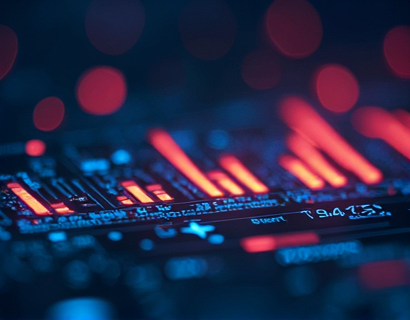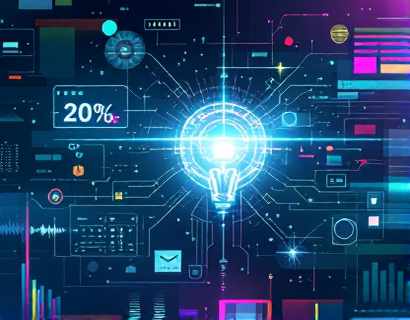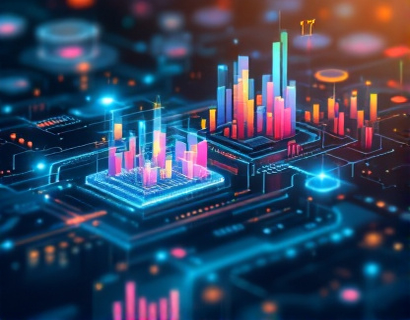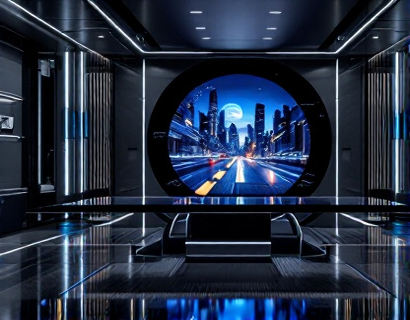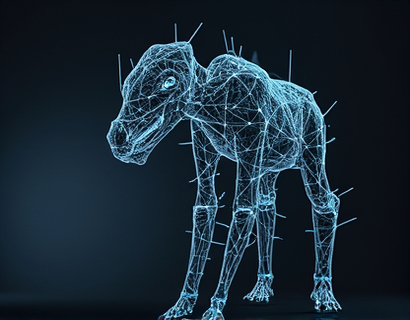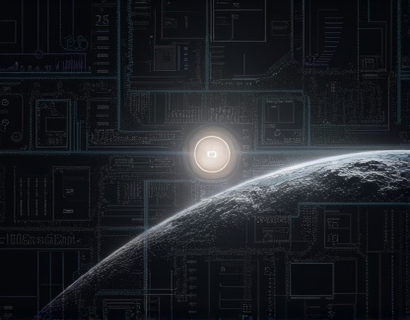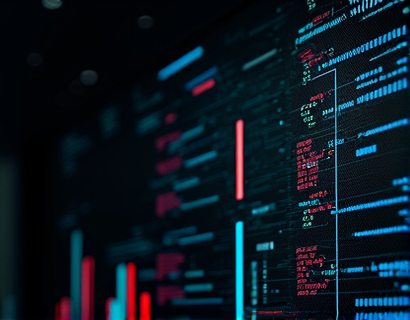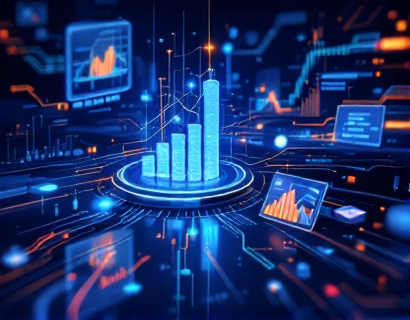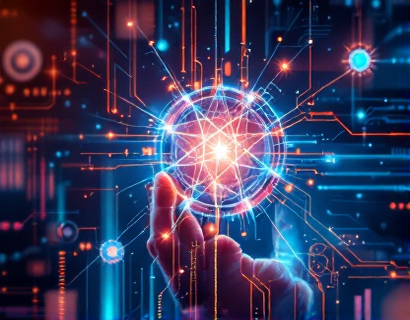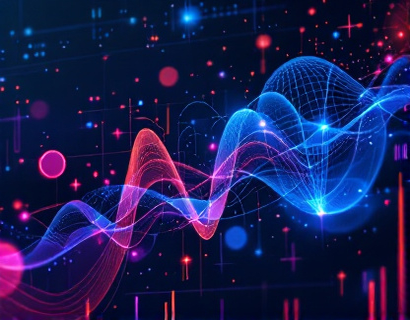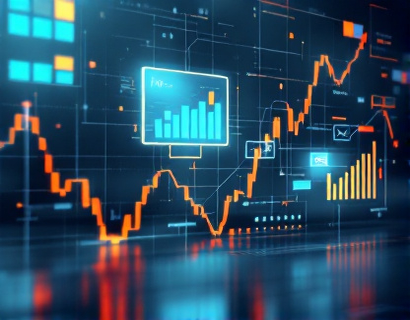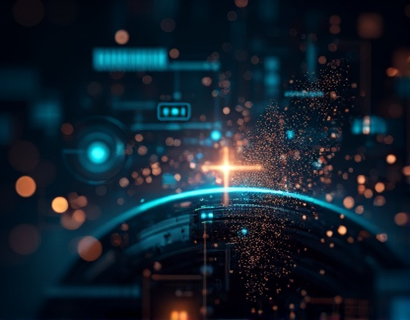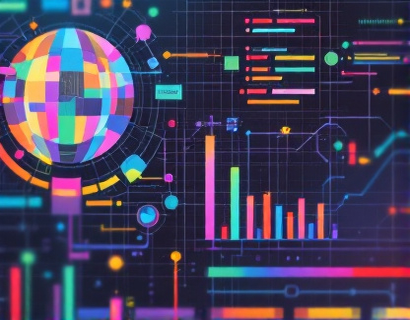AI and Blockchain: Transforming Digital Experiences for the Next Generation
The integration of Artificial Intelligence (AI) and Blockchain technology is ushering in a new era of digital transformation, one that promises to revolutionize the way we interact with online services and applications. This convergence, often referred to as BlockchainAI, is creating seamless, innovative, and user-enhancing applications that redefine the app and service landscape. As tech-savvy individuals and enthusiasts delve deeper into the realms of cryptocurrency and blockchain, the potential of AI-driven digital solutions becomes increasingly apparent. This article explores the synergy between AI and Blockchain, highlighting how their combination is set to empower the next generation of digital experiences.
The foundation of this transformation lies in the unique properties of Blockchain technology. Blockchain is a decentralized, distributed ledger that ensures transparency, security, and immutability. Each transaction is recorded in a block, which is then linked to the previous block, forming a chain. This structure eliminates the need for intermediaries, reduces transaction costs, and enhances trust among users. When combined with AI, which excels in data analysis, pattern recognition, and autonomous decision-making, the potential for innovative applications is vast.
Enhanced Security and Trust
One of the most significant benefits of integrating AI with Blockchain is the enhancement of security and trust. AI algorithms can monitor blockchain networks in real-time, detecting and mitigating potential threats such as fraudulent transactions or malicious attacks. Machine learning models can analyze vast amounts of data to identify anomalies and patterns that traditional security measures might miss. This proactive approach to security ensures that transactions remain secure and trustworthy, fostering a more reliable digital environment.
Moreover, AI can improve the user authentication process on blockchain platforms. Biometric data, such as facial recognition or fingerprint scans, can be integrated with blockchain to create robust and secure identity verification systems. This not only enhances user security but also streamlines the login and access processes, making them more efficient and user-friendly.
Optimized Smart Contracts
Smart contracts, self-executing contracts with the terms directly written into code, are a cornerstone of blockchain technology. AI can significantly enhance the functionality and efficiency of smart contracts. By incorporating machine learning algorithms, smart contracts can adapt to changing conditions and execute more complex tasks. For instance, AI can help in automating contract negotiations, predicting outcomes based on historical data, and ensuring compliance with regulatory requirements.
AI-driven optimization of smart contracts can also reduce the risk of errors and loopholes. Machine learning models can analyze contract code to identify potential vulnerabilities and suggest improvements. This results in more robust and reliable smart contracts, which are crucial for applications in areas such as supply chain management, real estate, and finance.
Personalized User Experiences
The combination of AI and Blockchain enables the creation of highly personalized digital experiences. AI algorithms can analyze user behavior, preferences, and interactions to provide tailored recommendations and services. On a blockchain-based platform, this data is securely stored and managed, ensuring privacy and control for the user. This synergy allows for the development of applications that offer personalized content, financial services, and more, all while maintaining the integrity and security of user data.
For example, in the financial sector, AI-powered blockchain applications can analyze a user's transaction history and financial behavior to offer customized investment advice or loan options. This level of personalization not only enhances user satisfaction but also increases the efficiency and effectiveness of services provided.
Decentralized Data Marketplaces
Another transformative application of AI and Blockchain is the creation of decentralized data marketplaces. These platforms allow users to securely share and monetize their data while maintaining control over their privacy. AI plays a crucial role in managing and optimizing these marketplaces, ensuring that data is accurately matched with demand and that transactions are fair and transparent.
Blockchain ensures that data transactions are immutable and traceable, providing a level of trust that is essential in data sharing. AI algorithms can predict data trends, optimize pricing, and facilitate seamless transactions, making these marketplaces highly efficient and valuable for all participants. This model not only empowers individuals by giving them ownership of their data but also creates new revenue streams and business opportunities.
Supply Chain Transparency and Efficiency
Supply chain management is another area where the integration of AI and Blockchain can bring significant improvements. By combining the transparency and security of blockchain with the analytical capabilities of AI, companies can achieve end-to-end visibility and optimization of their supply chains. AI can predict demand, optimize inventory levels, and identify bottlenecks, while blockchain ensures that all transactions and movements are recorded accurately and securely.
This combination reduces the risk of fraud, enhances traceability, and improves overall efficiency. For instance, in the food industry, blockchain and AI can track the journey of products from farm to table, ensuring food safety and quality. Consumers can access detailed information about the origin and journey of their food, building trust and confidence in the products they purchase.
Healthcare Innovations
The healthcare sector stands to benefit immensely from the convergence of AI and Blockchain. Patient data management is a critical challenge in healthcare, and the integration of these technologies can address many of these issues. AI can analyze vast amounts of medical data to identify patterns, predict disease outbreaks, and personalize treatment plans. Blockchain ensures that patient data is securely stored, shared, and managed, giving patients control over their medical records and enhancing privacy.
Smart contracts on the blockchain can automate insurance claims and reimbursements based on predefined criteria, reducing administrative burdens and speeding up the process. AI-driven diagnostics, powered by blockchain-secured data, can lead to more accurate and timely medical decisions, ultimately improving patient outcomes.
Challenges and Considerations
While the potential of AI and Blockchain is immense, there are several challenges and considerations that need to be addressed. Scalability remains a significant issue for blockchain technology, as current platforms struggle to handle high transaction volumes efficiently. AI algorithms require substantial computational resources, which can be costly and energy-intensive. Additionally, the integration of these technologies requires a deep understanding of both domains, necessitating skilled professionals who can bridge the gap between AI and blockchain.
Regulatory frameworks are another critical aspect to consider. As these technologies evolve, governments and regulatory bodies must develop clear guidelines to ensure responsible and ethical use. Privacy concerns, data governance, and the potential for misuse are all issues that need to be carefully managed to realize the full benefits of AI and Blockchain.
Conclusion
The convergence of AI and Blockchain is poised to transform the digital landscape, offering unprecedented opportunities for innovation and enhancement of user experiences. From enhanced security and personalized services to decentralized data marketplaces and efficient supply chains, the applications are vast and varied. As the technology continues to evolve, it is essential to address the challenges and ensure that the benefits are realized in a responsible and sustainable manner. For those interested in the intersection of cryptocurrency, blockchain, and AI, the future holds exciting possibilities that will shape the next generation of digital experiences.





